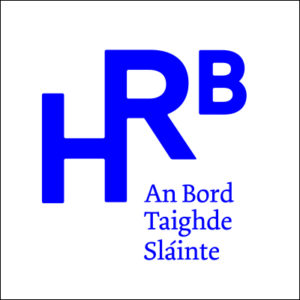From population to patient: Leveraging systems medicine to personalise breast cancer treatment
The ICS BREAST-PREDICT Cancer Research Centre aims to develop a systems-level clinical, pathophysiological and pharmacoepidemiological data-driven approach that will facilitate evidence-based predictive breast cancer medicine. Founded upon the rationalisation of national data and bioresources, together with advanced mining of publically available datasets, the BREASTPREDICT Centre will utilise systems medicine-based approaches to (a) model the effects of pharmacoepidemiological, comorbidity and lifestyle factors on breast cancer outcome; (b) examine the adaptive responses of breast tumours to targeted therapy; (c) identify rational combinatorial therapeutic regimes; (d) provide mechanistic anchoring of key breast cancer-driving pathways; and, (e) facilitate validation of signature-based diagnostics that can predict outcome and response to therapeutic intervention. To achieve this, a comprehensive analysis of breast tumours and associated bioresources from retrospective cohorts, ongoing prospective trials and novel prospective trials will be performed utilising next generation sequencing approaches and antibody-based proteomics, while functional genomic approaches will be employed to identify novel therapeutic targets and rational combinations of existing drugs. Findings will be mechanistically evaluated in vitro and in vivo using animal models and non-invasive imaging techniques. In summary, the BREAST-PREDICT Centre will facilitate the rationalisation of drug utilisation prior to and during breast cancer therapy and inform the next generation of hypothesis-driven research and clinical trials.
This collaboration and research centre was  funded by the Irish Cancer Society.
funded by the Irish Cancer Society.
Health Research Awards-Clinical validation of a minimally invasive serum test based on tumour-associated antigens for the diagnosis of colorectal cancer, allowing for prioritization of patients in need of colonoscopy
Principal Investigator: Prof. Jochen Prehn
In this project, the aim is to clinically validate a reverse ELISA-based assay developed in our laboratory which indicates the presence of auto-antibodies to these tumour-associated antigens in the serum of CRC patients.
HRB Scholars Programmes: Diagnostics and Therapeutics for Human Disease
The aim of the HRB scholars programme is to improve the quality of PhD training in health research by facilitating a broader education for young researchers, and enhancing co-operation between post-graduate students in different research groups. The prgramme research areas are Cancer Biology, Molecular Medicine, Health Services Research, Neuroscience, Immunology and Diagnostics and Therapeutics for Human Disease. Within RCSI, The PhD Scholars Diagnostics and Therapeutics for Human Disease programme brings together the complementary skills of researchers from Royal College of Surgeons in Ireland, Beaumont Hospital and Dublin City University. There are 7 research themes in this programme, led by Principal Investigators of international standing. The 8 leading Principal Investigators also make up the steering committee, which is responsible for the governing of the programme. The research themes are as follows:
- Respiratory Disease and Innate Immunity – Professor Gerald McElvaney
- Neuro/Psychiatric Disorders – Professor Jochen Prehn
- Molecular Endocrinology and Cancer – Professor Elaine Kay and Professor Brian Harvey
- Cardiovascular Disease – Professor Niamh Moran
- Bioengineering and Regenerative Medicine – Professor Clive Lee
- Biomedical Diagnostics – Professor Richard O’Kennedy
Structure Based Drug Design and Development – Professor Kevin B. Nolan

You can also view other projects here